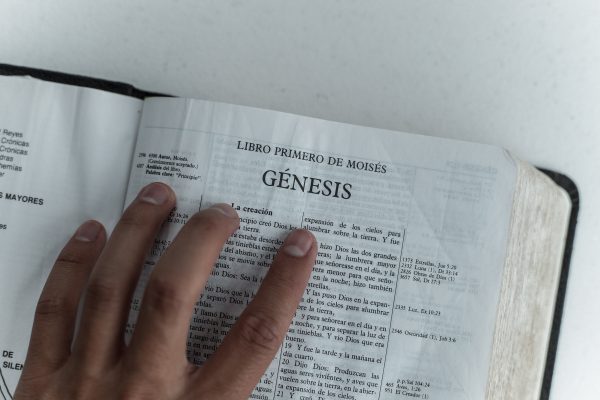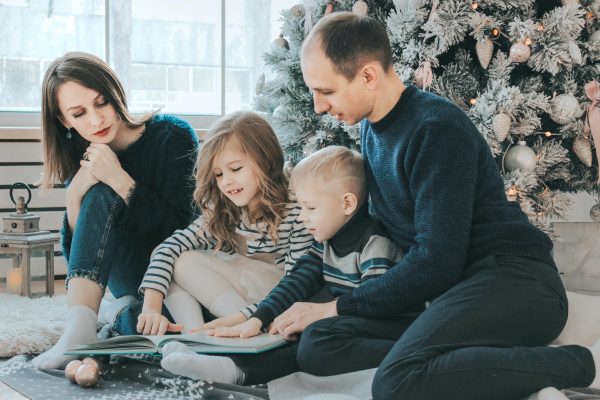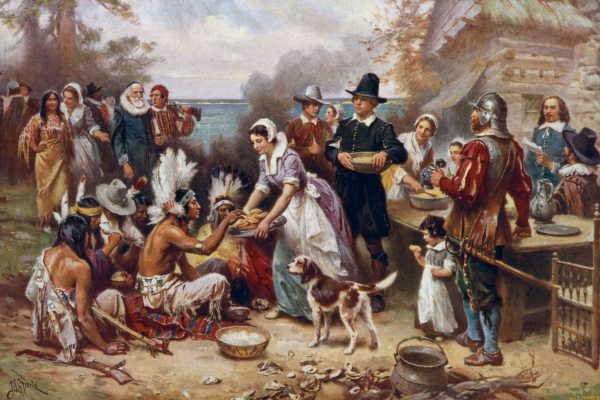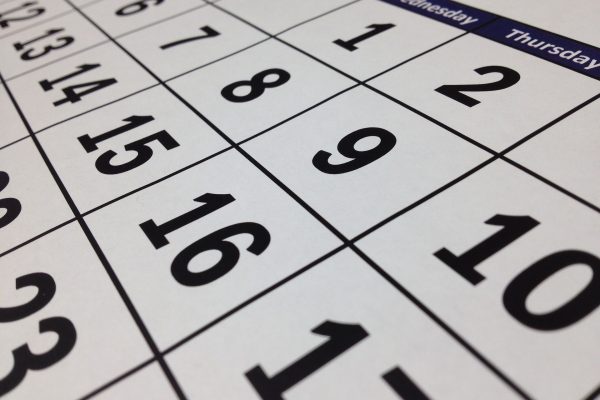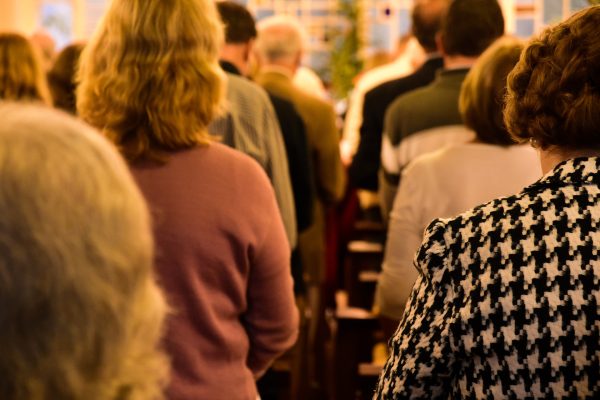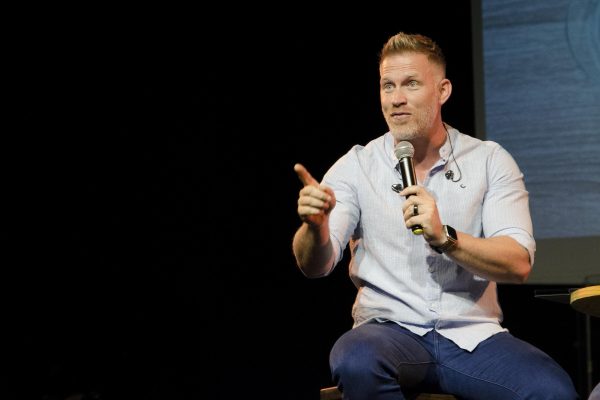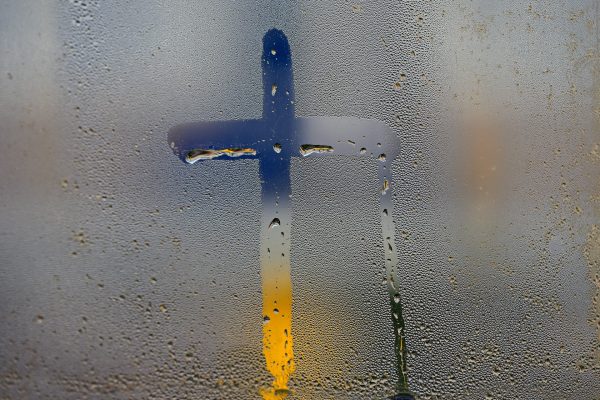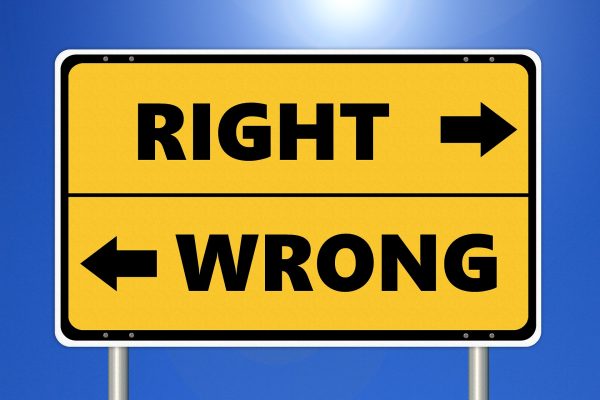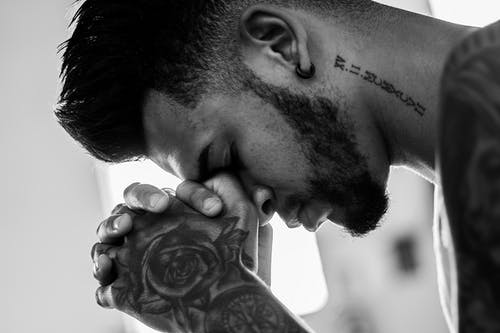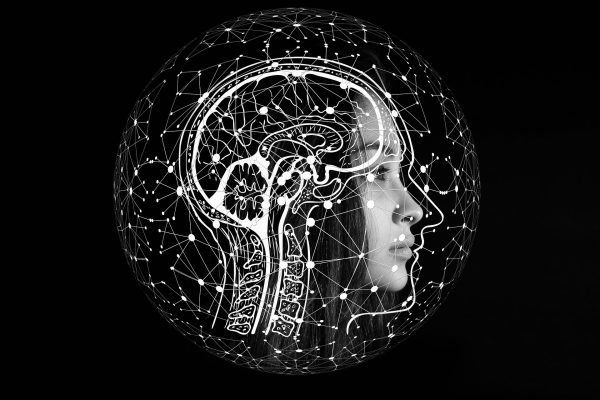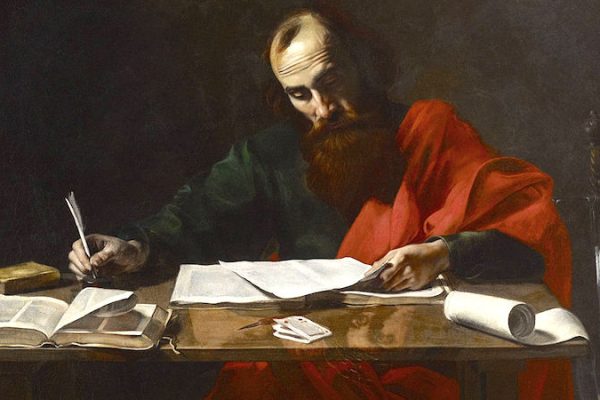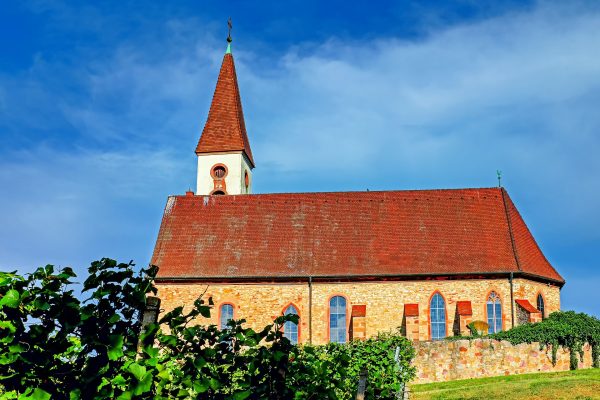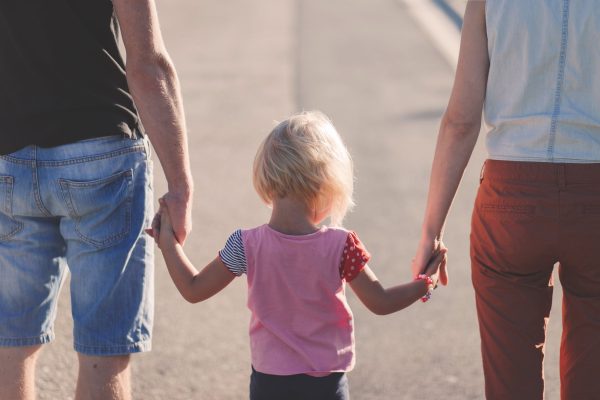Home>Theology and Spirituality>What Is The Relationship Between The Church And The State ?
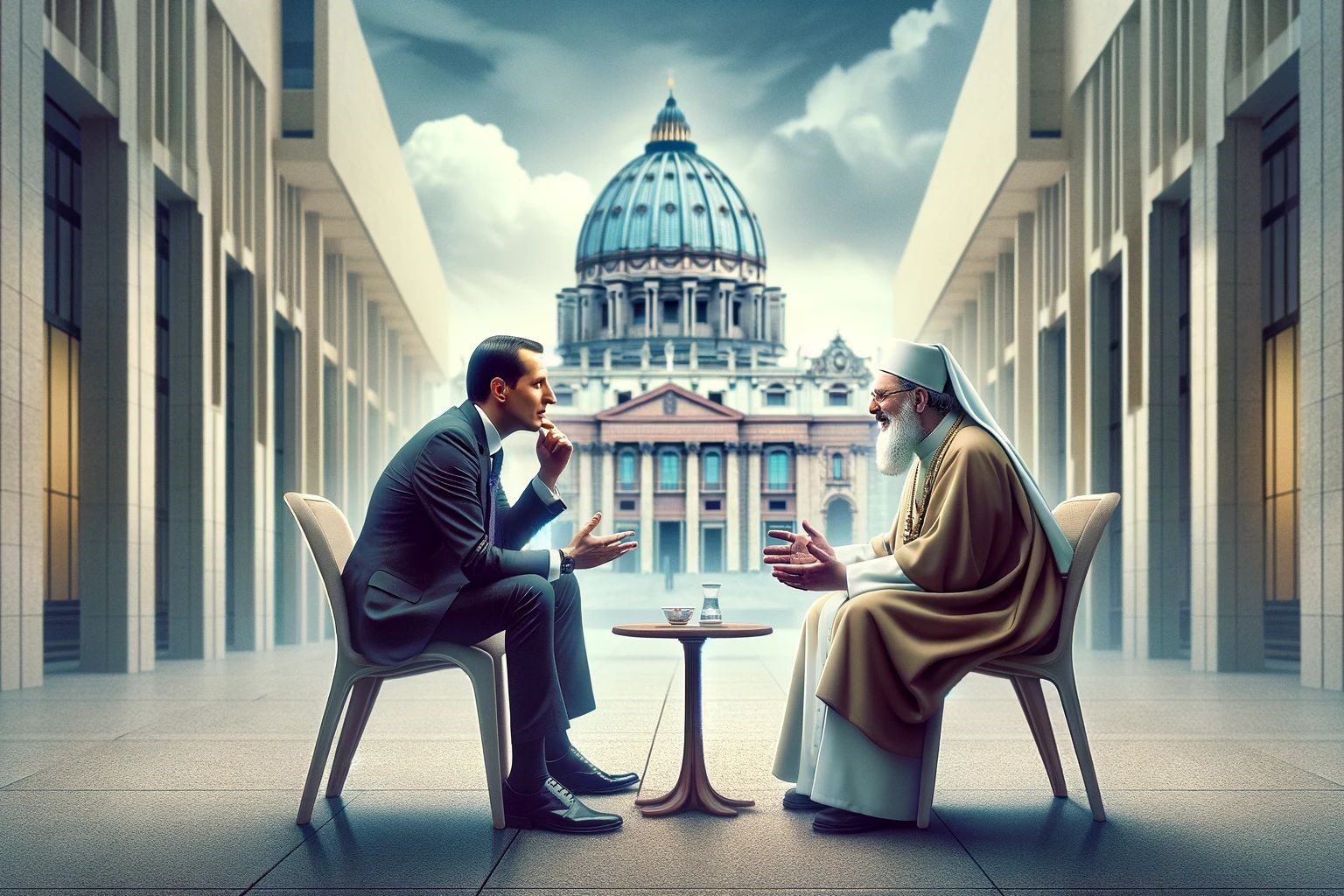

Theology and Spirituality
What Is The Relationship Between The Church And The State ?
Published: February 11, 2024
Explore the intricate relationship between the church and the state in theology and spirituality. Understand the dynamics and implications of their interaction.
(Many of the links in this article redirect to a specific reviewed product. Your purchase of these products through affiliate links helps to generate commission for Christian.net, at no extra cost. Learn more)
Table of Contents
Introduction
The relationship between the church and the state has been a topic of profound significance throughout history, shaping the political, social, and religious landscapes of societies worldwide. This intricate interplay between religious institutions and governmental authorities has sparked debates, influenced policies, and at times, led to conflicts that have reverberated across generations.
The dynamics of the church-state relationship are multifaceted, encompassing a wide array of theological, ethical, and legal considerations. At its core, this relationship delves into the fundamental question of how religious beliefs and practices intersect with the governance and laws of a society. It raises issues of authority, morality, and the balance of power between spiritual and secular realms.
Throughout the ages, the relationship between the church and the state has evolved, often reflecting the prevailing ideologies, cultural norms, and power dynamics of different eras. From the theocratic rule of ancient civilizations to the establishment of state religions in medieval Europe, and the subsequent movements towards religious freedom and secular governance, the historical tapestry of church-state relations is rich and diverse.
As we delve into the historical perspectives, contemporary challenges, and the concept of the separation of church and state, it becomes evident that this relationship is not static but rather dynamic, continually influenced by societal changes, philosophical shifts, and legal developments. Understanding the complexities and nuances of this relationship is crucial for comprehending the broader dynamics of governance, religious freedom, and societal harmony.
In the subsequent sections, we will explore the historical perspectives on church-state relations, the roles of the church in shaping state policies, the state's role in regulating church affairs, contemporary issues in church-state relations, and the concept of the separation of church and state. By delving into these aspects, we aim to unravel the intricate web of interactions between the church and the state, shedding light on the profound impact of this relationship on the fabric of societies past and present.
Read more: The Influence Of Religion On Education
Historical Perspectives on Church-State Relations
The historical interplay between the church and the state has been a compelling saga, marked by a complex tapestry of alliances, conflicts, and transformations. In ancient civilizations such as Egypt, Mesopotamia, and Rome, theocratic rule prevailed, with religious and political authority intricately intertwined. Rulers were often regarded as divine or as intermediaries between the gods and the people, consolidating their power through religious legitimacy.
The advent of Christianity in the Roman Empire brought about a significant shift in church-state relations. The conversion of Emperor Constantine and the subsequent establishment of Christianity as the state religion heralded a new era, where the church wielded considerable influence over political affairs. This fusion of religious and political power reached its zenith during the medieval period, as the Catholic Church emerged as a dominant force, exerting authority over matters both spiritual and temporal.
The medieval era also witnessed the concept of "two swords," articulated by Pope Gelasius I, which delineated the separate realms of spiritual and secular authority. However, in practice, the boundaries between the church and the state often blurred, leading to power struggles and conflicts such as the Investiture Controversy, a protracted dispute over the appointment of church officials.
The Protestant Reformation further reshaped church-state relations, as the emergence of new religious denominations and the rise of nation-states challenged the authority of the Catholic Church. This period saw the entwining of religious and political identities, with rulers aligning themselves with specific religious factions, leading to religious wars and conflicts across Europe.
The Enlightenment era ushered in a paradigm shift, advocating for the separation of church and state and the promotion of religious tolerance. Philosophers such as John Locke and Voltaire championed the idea of secular governance, laying the groundwork for the modern concept of religious freedom and the protection of individual conscience.
The historical perspectives on church-state relations underscore the enduring impact of this relationship on the development of societies and the evolution of governance. The intricate interplay between religious institutions and political authorities has left an indelible imprint on the course of history, shaping laws, cultural norms, and the very fabric of human civilization. Understanding this historical backdrop is essential for comprehending the complexities and implications of the church-state relationship in contemporary society.
The Role of the Church in Shaping State Policies
The role of the church in shaping state policies has been a pivotal aspect of the church-state relationship throughout history. From the early days of Christendom to the present, religious institutions have exerted significant influence on the formulation and implementation of state policies, often reflecting the moral, ethical, and doctrinal perspectives of the church.
During the medieval period, the Catholic Church held immense sway over state policies, playing a central role in governance, lawmaking, and social welfare. The church's teachings and moral precepts permeated the fabric of society, guiding the conduct of rulers and shaping the legal framework of nations. The concept of divine right of kings, rooted in religious doctrine, bolstered the authority of monarchs and influenced their decisions in matters of governance and justice.
The church also wielded influence through its role in education, as monastic institutions and cathedral schools served as centers of learning and intellectual discourse. The dissemination of knowledge and the preservation of classical texts were integral to the church's mission, nurturing a cadre of scholars and thinkers who would later contribute to the development of statecraft and governance.
Moreover, the church's stance on moral issues, such as just war theory and the treatment of the poor and marginalized, often intersected with state policies, shaping laws and social welfare programs. The issuance of papal decrees and the pronouncements of church councils carried significant weight, guiding the actions of rulers and legislators in matters ranging from taxation to the treatment of prisoners.
In more recent history, the role of the church in shaping state policies has extended to contemporary issues such as human rights, social justice, and environmental stewardship. Religious leaders and organizations have been instrumental in advocating for legislative reforms, addressing societal inequities, and promoting ethical considerations in public policy.
The church's involvement in shaping state policies continues to be a subject of debate and scrutiny, particularly in pluralistic societies where diverse religious and secular perspectives coexist. The tension between religious convictions and the principles of a secular state underscores the complexities inherent in navigating the influence of the church on state policies while upholding the principles of democratic governance and individual freedoms.
In essence, the role of the church in shaping state policies reflects the enduring interplay between religious values and the mechanisms of governance, underscoring the profound impact of the church-state relationship on the moral and ethical dimensions of public policy. Understanding this historical and contemporary dynamic is essential for comprehending the broader implications of the church-state relationship in the modern era.
The Role of the State in Regulating Church Affairs
The role of the state in regulating church affairs has been a contentious and intricate facet of the church-state relationship. Throughout history, governments have sought to exert control over religious institutions, often intertwining political authority with matters of faith, doctrine, and ecclesiastical governance.
In the medieval period, monarchs and rulers wielded considerable influence over the church, asserting authority in the appointment of bishops and the administration of ecclesiastical lands. This practice, known as lay investiture, engendered power struggles between secular and religious authorities, culminating in conflicts such as the aforementioned Investiture Controversy. The struggle for supremacy between the state and the church underscored the complexities of regulating church affairs within the framework of secular governance.
The Reformation era witnessed a shift in the state's role in regulating church affairs, as the emergence of Protestant denominations led to the establishment of state churches in various European nations. Rulers assumed authority over religious matters, imposing doctrinal conformity and ecclesiastical regulations in line with their own religious affiliations. This intertwining of state and church authority gave rise to religious persecution, as dissenting religious groups faced suppression and persecution at the hands of the state.
In more recent history, the role of the state in regulating church affairs has evolved in tandem with the principles of religious freedom and the separation of church and state. Constitutional provisions and legal frameworks have delineated the boundaries of state intervention in religious matters, safeguarding the autonomy of religious institutions while upholding the principles of equality and non-discrimination.
The state's regulation of church affairs extends to areas such as taxation, land ownership, and the recognition of religious institutions. Governments enact laws and regulations that govern the financial and administrative aspects of religious organizations, ensuring compliance with legal standards while respecting the religious autonomy guaranteed by constitutional provisions.
Furthermore, the state plays a role in safeguarding the rights of religious minorities and ensuring that all religious groups enjoy equal protection under the law. This entails preventing discrimination, safeguarding religious practices, and adjudicating disputes that may arise within religious communities.
The complexities of the state's role in regulating church affairs underscore the delicate balance between governmental authority and religious autonomy. Navigating this balance requires a nuanced understanding of legal, ethical, and constitutional principles, ensuring that the state upholds the rights of religious institutions while fulfilling its obligations to govern in a fair and equitable manner.
In essence, the state's regulation of church affairs reflects the intricate interplay between secular governance and religious autonomy, shaping the dynamics of the church-state relationship and the broader landscape of religious freedom and pluralism in contemporary societies. Understanding this dynamic is essential for comprehending the complexities and implications of the church-state relationship in the modern era.
Contemporary Issues in Church-State Relations
Contemporary society grapples with a myriad of complex issues that underscore the evolving dynamics of church-state relations. These issues encompass a broad spectrum of legal, ethical, and social considerations, reflecting the ongoing interplay between religious institutions and governmental authorities in an increasingly diverse and interconnected world.
One of the prominent contemporary issues in church-state relations revolves around the intersection of religious freedom and anti-discrimination laws. Debates surrounding the accommodation of religious beliefs within the framework of anti-discrimination legislation have sparked contentious legal battles and public discourse. Questions arise regarding the extent to which religious institutions and individuals can adhere to their beliefs while ensuring equal treatment and protection for all members of society.
Furthermore, the role of religious institutions in public life and policymaking has emerged as a focal point of debate. Issues such as the influence of religious lobbying on legislative decisions, the provision of social services by religious organizations, and the display of religious symbols in public spaces have raised fundamental questions about the boundaries between religious expression and the neutrality of the state.
The ongoing dialogue on the taxation and financial accountability of religious institutions also constitutes a significant contemporary issue. Discussions center on the tax-exempt status of religious organizations, the transparency of their financial operations, and the allocation of public funds to religious initiatives. Balancing the autonomy of religious institutions with the principles of fiscal responsibility and transparency presents a complex challenge in the realm of church-state relations.
Moreover, the complexities of accommodating diverse religious perspectives in public education have given rise to contentious issues. Debates over the inclusion of religious curricula, the display of religious symbols in educational settings, and the accommodation of religious practices within the school environment underscore the challenges of navigating the religious dimensions of public education within the framework of secular governance.
The emergence of new ethical and technological frontiers has also engendered contemporary issues in church-state relations. Debates surrounding reproductive rights, end-of-life care, genetic engineering, and the ethical implications of emerging technologies pose profound challenges at the intersection of religious beliefs, individual liberties, and public policy.
Navigating these contemporary issues requires a delicate balance between upholding religious freedoms, ensuring equality and non-discrimination, and upholding the principles of secular governance. The complexities inherent in addressing these issues underscore the ongoing evolution of church-state relations and the imperative of fostering dialogue, understanding, and respect within diverse and pluralistic societies.
Read more: Christian Theology On Heaven And Hell
The Separation of Church and State
The concept of the separation of church and state has been a cornerstone of modern governance, embodying the principles of religious freedom, secularism, and the autonomy of both religious institutions and governmental authorities. Rooted in the Enlightenment ideals of individual liberty and the rationalization of governance, the notion of separating religious and political spheres has profoundly shaped the dynamics of church-state relations in contemporary societies.
At its core, the separation of church and state advocates for the independence of religious institutions from governmental control and the autonomy of the state from religious influence. This principle seeks to safeguard the freedom of individuals to practice their faith without coercion or favoritism from the state, while also ensuring that the government remains neutral in matters of religion, treating all citizens equitably regardless of their beliefs.
The historical antecedents of the separation of church and state can be traced to the writings of Enlightenment philosophers such as John Locke and Voltaire, who advocated for the disentanglement of religious authority from political power. Their ideas laid the groundwork for the development of secular governance, where the state operates independently of religious dogma and institutions, fostering a pluralistic and inclusive society.
In the United States, the principle of separation of church and state is enshrined in the First Amendment of the Constitution, which prohibits the establishment of a state religion and guarantees the free exercise of religion. This constitutional provision has been pivotal in shaping the legal framework for religious freedom and the delineation of the boundaries between religious and governmental domains.
The separation of church and state also encompasses the notion of religious pluralism, recognizing and accommodating diverse religious beliefs within the framework of governance. It underscores the imperative of respecting the rights of individuals to practice their faith while upholding the principles of equality and non-discrimination in the public sphere.
In contemporary society, the principle of the separation of church and state continues to be a subject of debate and interpretation, particularly in the context of accommodating religious beliefs within the framework of secular governance. Navigating the complexities of religious expression, public policy, and individual freedoms requires a nuanced understanding of the principles underpinning the separation of church and state, fostering a harmonious coexistence of diverse religious and secular perspectives within the fabric of society.
The separation of church and state stands as a testament to the enduring quest for a just and equitable society, where the rights of individuals to practice their faith and the principles of secular governance converge in a delicate balance, shaping the contours of modern democracy and religious freedom.
Conclusion
The intricate relationship between the church and the state has been a defining feature of human civilization, shaping the course of history, governance, and societal values. From the theocratic rule of ancient civilizations to the establishment of state religions in medieval Europe, and the subsequent movements towards religious freedom and secular governance, the historical tapestry of church-state relations is rich and diverse.
Throughout history, the church has played a pivotal role in shaping state policies, exerting influence on governance, lawmaking, and social welfare. Its moral precepts and doctrinal perspectives have permeated the fabric of society, guiding the conduct of rulers and shaping the legal framework of nations. The state, in turn, has regulated church affairs, asserting authority over religious institutions and navigating the delicate balance between governmental control and religious autonomy.
Contemporary society grapples with a myriad of complex issues that underscore the evolving dynamics of church-state relations. Debates surrounding religious freedom, anti-discrimination laws, the role of religious institutions in public life, taxation, public education, and ethical considerations at the intersection of religious beliefs and public policy continue to shape the discourse on church-state relations.
The principle of the separation of church and state, rooted in the Enlightenment ideals of individual liberty and secular governance, embodies the principles of religious freedom, secularism, and the autonomy of both religious institutions and governmental authorities. It seeks to safeguard the freedom of individuals to practice their faith without coercion or favoritism from the state, while ensuring that the government remains neutral in matters of religion, treating all citizens equitably regardless of their beliefs.
In navigating the complexities of church-state relations, it is essential to foster dialogue, understanding, and respect within diverse and pluralistic societies. The enduring quest for a just and equitable society, where the rights of individuals to practice their faith and the principles of secular governance converge in a delicate balance, shapes the contours of modern democracy and religious freedom.
Understanding the historical, contemporary, and philosophical dimensions of the church-state relationship is crucial for comprehending the broader implications of this intricate interplay on the moral and ethical dimensions of public policy, governance, and societal harmony. As society continues to evolve, the dynamics of church-state relations will undoubtedly continue to shape the fabric of human civilization, reflecting the enduring quest for a harmonious coexistence of diverse religious and secular perspectives within the framework of modern governance.
